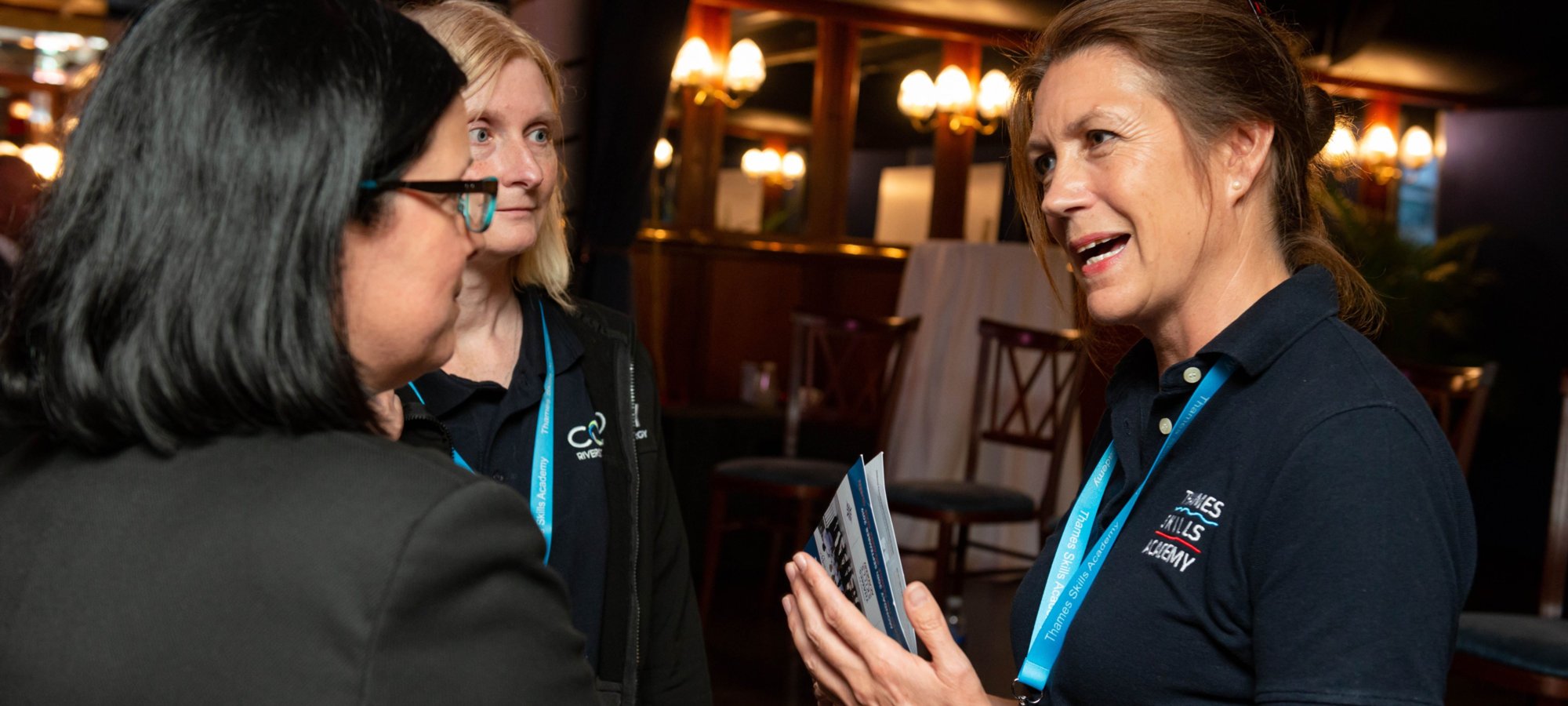
Apprenticeships

Apprenticeships
FAQ on the apprenticeships supported by the TSA will provide employees with an overview on:
The TSA currently supports two apprenticeships which have been developed by the TSA working with local employers to meet the needs of the Thames.
Boatmaster Apprenticeship, delivered by SeaRegs and the Marine Society
A Boatmaster often navigates vessels through busy and highly challenging waterways. Opportunities in this industry are very wide-ranging - for instance, a Boatmaster could be the captain of a single vessel tourist boat or could be working for a large freight operator, responsible for safely moving freight along the river to a port.
The Boatmaster apprenticeship provides the skill sets needed to cover the whole of the BML syllabus, as well as additional skills including leadership requested by employers. There is a total of 24 qualification once completed.
Maritime Engineering, delivered by South Essex College
Maritime engineers are involved with the design, construction, installation, operation, maintenance and repair of the main propulsion engines and auxiliary machinery and systems found in all kinds of ships, boats and offshore installations. Essentially, they are keeping the vessel operating on the Thames as much as possible.
The Maritime engineer qualification includes Maritime engineering training on mechanics, welding, electronics and hydraulics. The first 2 years of the apprenticeship are at Level 2 and the following 2 years at Level 3. Learners spend the first 3 years in the college on day release (once a week), and they are assessed in their workplace every 8 weeks. In years 3 and 4, the learner will choose a pathway of mechanical, electrical or welding.
In year 4 the apprentice will learn skills needed to comply with regulations, the use of data and efficiency at the workspace and specialise in either handling and maintenance of mechanical equipment or installation, testing and maintenance of electronic equipment. This year is mainly carried out in the workplace.
The course is extremely diverse and heavily weighted toward hands on learning in an environment with suitable industry standard resources and equipment.
With this solid education, employers are training their internal workforce based on the company’s needs and specialisms which will save them from depending on external sub-contracted engineers who are generally in high demand.
|
Apprentice (year 1 only irrespective of age) |
under 18 |
18-20 |
21-22 |
23 and over |
|
£4.30 |
£4.62 |
£6.56 |
£8.36 |
£8.91 |
After completing the first year of their apprenticeship an apprentice will receive the national minimum wage for their age. More information here. The same holiday allowance and HR policies and procedures apply as for any other employee.
Employers have to cover the travel costs from and to the college in London. The Boatmaster apprenticeship also includes 7 weeks training in Plymouth, costs for travel, accommodation and sustenance will be paid by the employer.
The Boatmaster is 2 years and the Maritime Engineer a 4-year education. During this time, apprentices must achieve 20% “off the job training”, which is provided by the apprenticeship. Apprentices will attend the college on a day release basis and this will be once a week.
Apprentices must normally be at least 18 years old and hold a GCSE Grade C/4 in Math and English or equivalent.
Apprentices must be British citizens or have lived in the UK for more than 3 years and have signed a commitment statement as well as an apprenticeship agreement with their employer. The TSA can help employers find high quality apprentices.
Apprentices will have to be employed for at least the duration of their programme, with a contract of employment and this must be a minimum of 30 hours per week (including college day) and no more than 40 hours per week (if they are under 18 only).